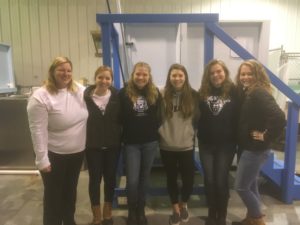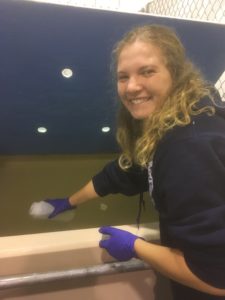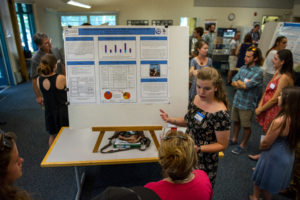As part of a new, collaborative NSF-funded research and training program in the genomic ecology of coastal organisms, we are recruting a PhD student who will study genome-phenome relationships in the wild. The student will be expected to conduct both field work and genomic analyses towards understanding adaptation and the links between plumage phenotypes (color, resilience to wear, and microbiomes) and reproductive fitness across sparrow species. Field work during summer months may involve supervising field crews in tidal marshes across the Northeast US, from Maine to Virginia. Genomic analyses will include candidate gene sequencing, gene expression analyses, and microbiome characterization.
The student will be co-advised by Drs. Kristina Cammen (http://cammenlab.org) and Brian Olsen (https://sbe.umaine.edu/olsen-2/), through the Ecology and Environmental Sciences program at the University of Maine, located in Orono, an hour to the ocean and an hour and a half to Maine’s highest peak. The student will also have the opportunity to work in collaboration with a diverse team of investigators, graduate students, and undergraduate students at the Universities of New Hampshire and Maine studying the ecological genomics and eco-evolutionary feedbacks of adaptation in tidal marsh birds.
The successful candidate must have a strong background in ecology and/or genomics. Preferred candidates will have demonstrated experience with field work, in particular, bird mist-netting (previous time as a federal banding sub-permittee strongly preferred), as well as experience in genetics, genomics, and/or bioinformatics. Consistent with our program scope and to advance an integrated understanding of adaptation in nature, we are especially interested in candidates who show promise to work in an inclusive and diverse collaborative environment and to engage intellectually across the diverse scales of genomes, phenomes, and environmental feedbacks. Individuals who are intellectually curious, responsible, willing to learn, team-oriented, and have attention to detail are encouraged to apply. An M.S. in a related field is preferred, but qualified candidates with extensive experience will be considered.
To apply, please send a cover letter describing your qualifications, including your commitment to diversity and inclusion in collaborative science, a curriculum vitae, unofficial transcripts, and the contact information for at least three references to kristina.cammen@maine.edu and brian.olsen@maine.edu with “Ecological Genomics PhD Student Search” as the subject line of your email. All applications received before November 14, 2018 will receive full consideration, and applications will be accepted on a rolling basis thereafter until the positions are filled. A start date of January 2019 is strongly preferred.





